The Royal Horticultural Society (RHS)-Eastern Eye “Garden of Unity”, designed by Manoj Malde, appears to have been one of the big hits of the Chelsea Flower Show this year.
Located prominently on Main Avenue and close to the Great Pavilion, Malde’s vivid colours attracted even King Charles and Queen Camilla.
Another visitor, Thérèse Coffey, secretary of state for environment, food and rural affairs, spoke to Malde about how to achieve greater diversity in the world of gardening – she is set to attend the G20 summit in India in September alongside prime minister Rishi Sunak.
“Gardening is for everyone,” said Clare Matterson, setting out her long-term strategy as director general of the RHS, which is also working closely with the Department of Education to take gardening to schools across the country.
If this year is anything to go by, Eastern Eye readers ought to consider becoming members of the Royal Horticultural Society and set a date for the 2024 Chelsea Flower Show.

The Garden of Unity will see a new life at a school in Battersea (incidentally, membership is only £10 a year for students).
At Chelsea last week, the RHS and Eastern Eye held a reception
in the Garden of Unity. Matterson came to the event where her senior team was represented by Helena Pettit, director of gardens and shows; Ed Horne, head of communications; and Hayley Monckton, director of communications, who was generous in thanking
Eastern Eye.
“We absolutely love working with you,” Monckton said. “I think this garden epitomises our relationship. It is beautiful. It is uplifting, it is accessible and joyful.”
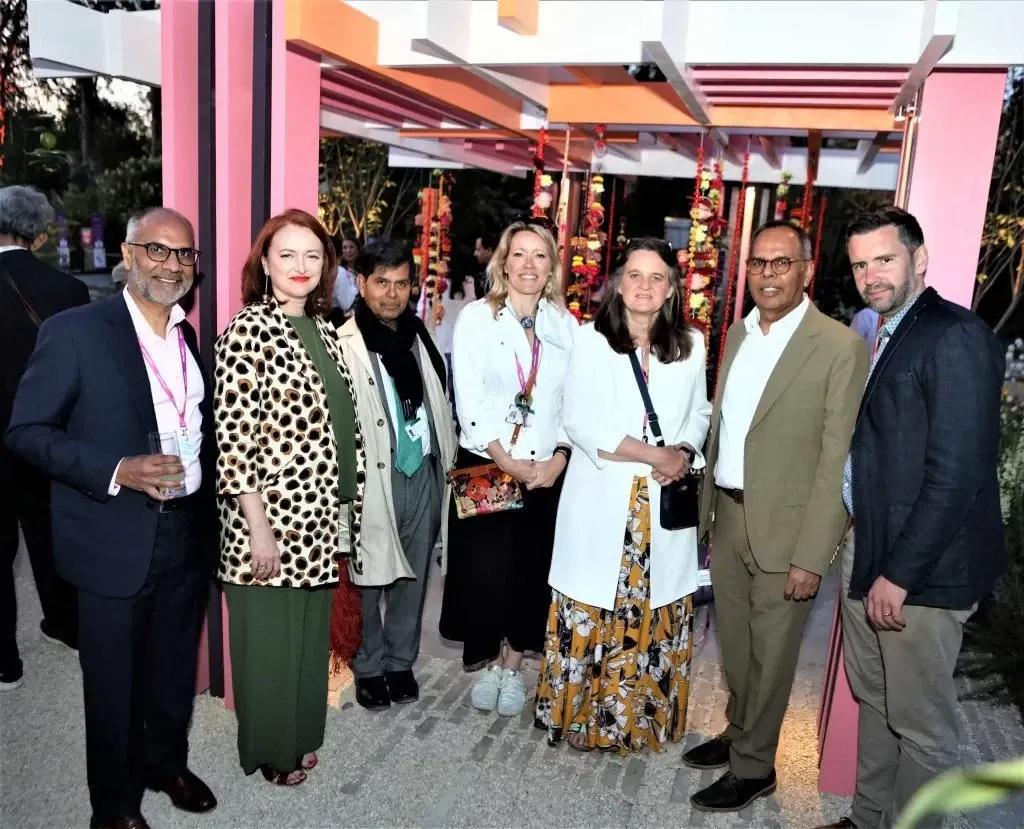
She confirmed the garden “will be living on afterwards. It will be going to a school in Battersea and will bring so much more joy and happiness to life, which I hope will be similar with our partnership that we continue.”
The guests included the Indian high commissioner Vikram Doraiswami, who spoke of “the importance of working with your hands, (and) with the soil.
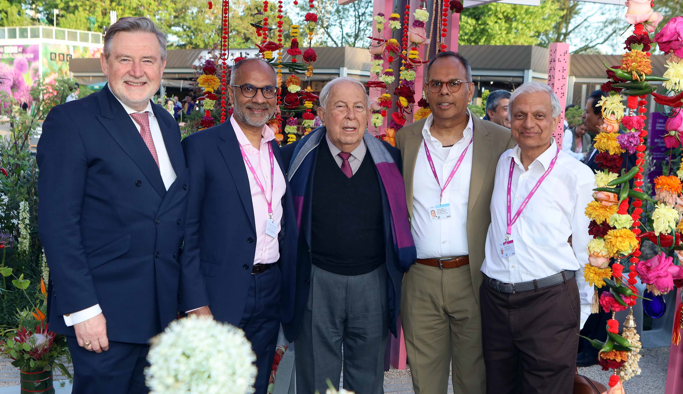
“I think Mahatma Gandhi put it really well when he said to forget how to take the earth and turn the soil is to forget ourselves. And so the human connection with the garden and with the soil is such an integral thing – it is part of so many cultures, but, of course, the British culture, and also the history of India, the history of Persia.
“It is also part of the story of civilisation,” he went on. “Because what else is civilisation unless it is all about gardening and about growing plants and about cultivating food? Societies were considered civilised through the move from the pastoral phase to the agricultural phase – and agriculture is, shall we say, the close cousin of gardening. And so gardening is, in many senses, the highlight of human creativity in exploring what nature actually intends.”
Doraiswami, who is knowledgeable about PG Wodehouse’s novels, referred humorously to a couple of his characters: “You may also remember gardening is central to the Wodehousian universe. Lord Emsworth’s greatest quarrels with his gardener Angus McAllister …. (are) about whether to lay moss instead of gravel in the gardens of Lord Emsworth’s (Blandings) Castle in Shropshire.
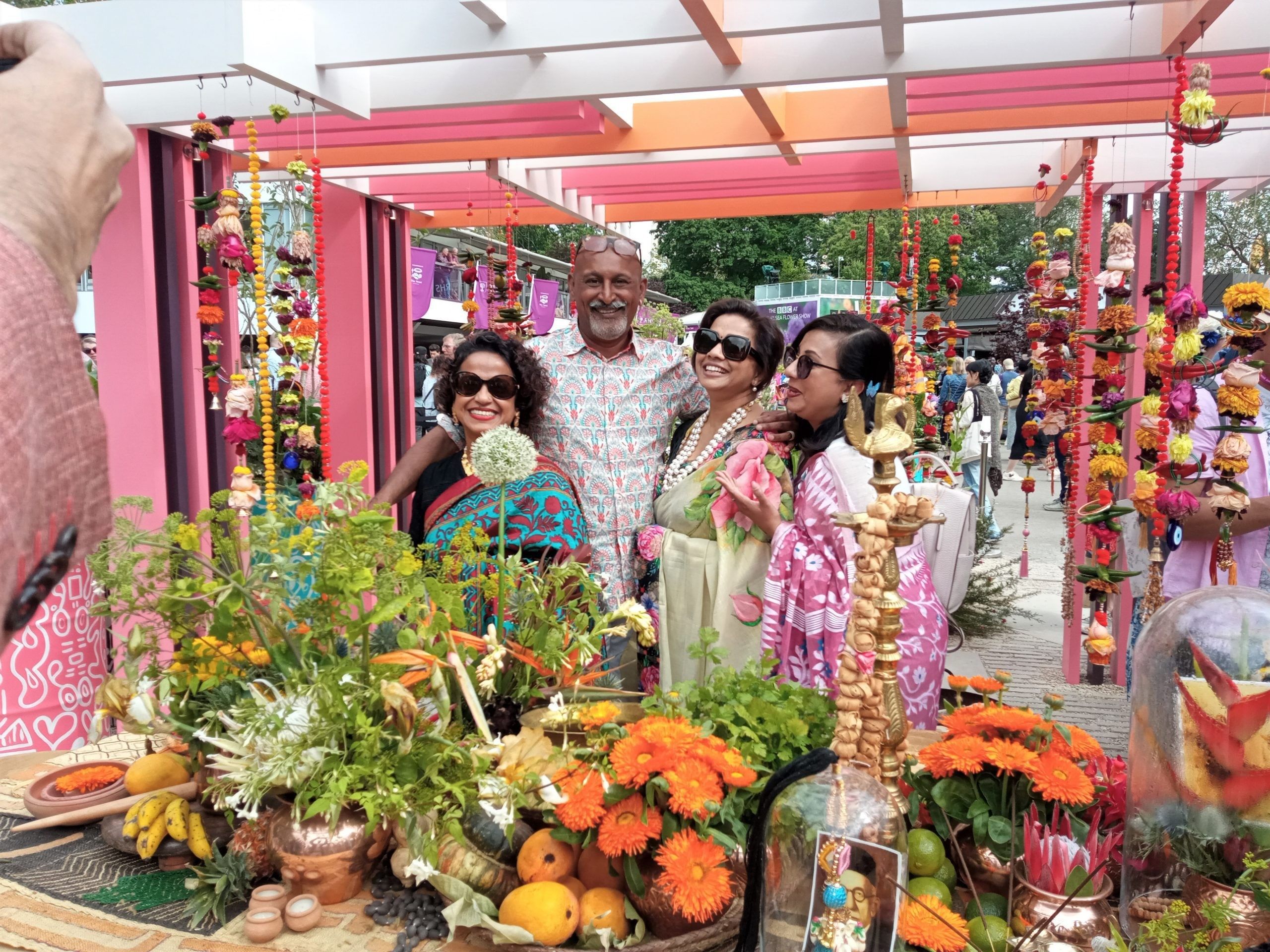
“And it isn’t until you actually reach the UK, you realise why gardening is such a big deal because it is in gardening that I think the British soul, which is otherwise reticent and careful about not expressing itself, really gives itself up into an excess of emotion.
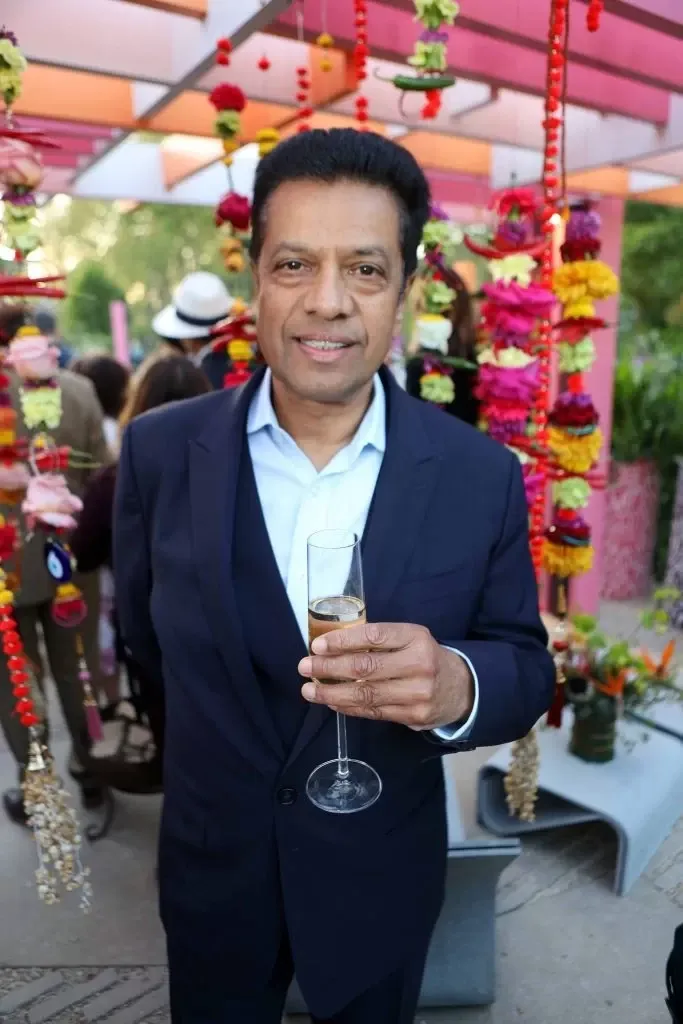
“I think that, for me, is the beauty of gardens. And that for me is why gardens are sources of unity, because with gardens, you can express yourself in a variety of colours, in a variety of languages, and yet maintain a stiff upper lip.
“So to gardens, to the RHS and, of course, to our gracious hosts, what better place to meet and celebrate the flower festival than at the Garden of Unity.”
The high commissioner made special mention among the guests of Dr Yusuf Hamied, the chairman of Cipla, the Indian pharma giant – “a legend in his time” who had saved “millions of lives” – and Barry Gardiner, the Labour MP for Brent North and “a good friend of the India-UK relationship”.
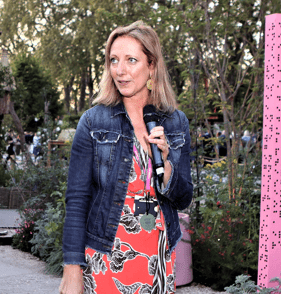
Hamied said his wife Farida made sure he didn’t miss the reception, while Gardiner, who had come with his poet wife, Caroline Smith, said: “Gardening helps us realise we are a part of, not apart from, nature. How lovely then to have a Unity Garden at Chelsea this year, with chilli peppers and gourds mingling with plants more commonly seen in an English garden like Ascanthus Mollis and Salvia Verticillata. For centuries gardeners in every country have brought species from ‘exotic’ places to enhance their native plants and beautify their homes – true examples of unity in diversity.”
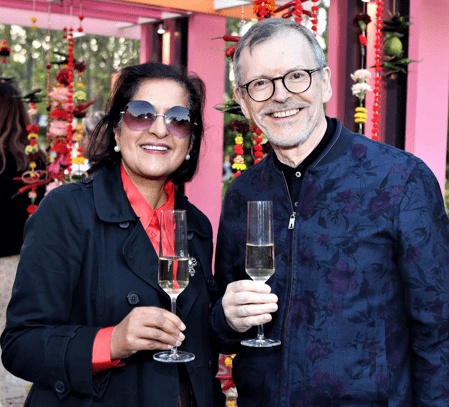
Dame Bobbie Cheema-Grubb, otherwise the high court judge, Mrs Justice Cheema Grubb, who had come with her husband Russell, remarked: “Gardening is a pleasure enjoyed by many people across the world, and the Eastern Eye garden’s focus on unity echoes this. Incorporating vibrant planting, the colours of the Indian landscape and some whimsical elements such as the hanging decorations made of bangles, flowers and even real chillies, it was a delight to be invited to see this imaginative garden.”
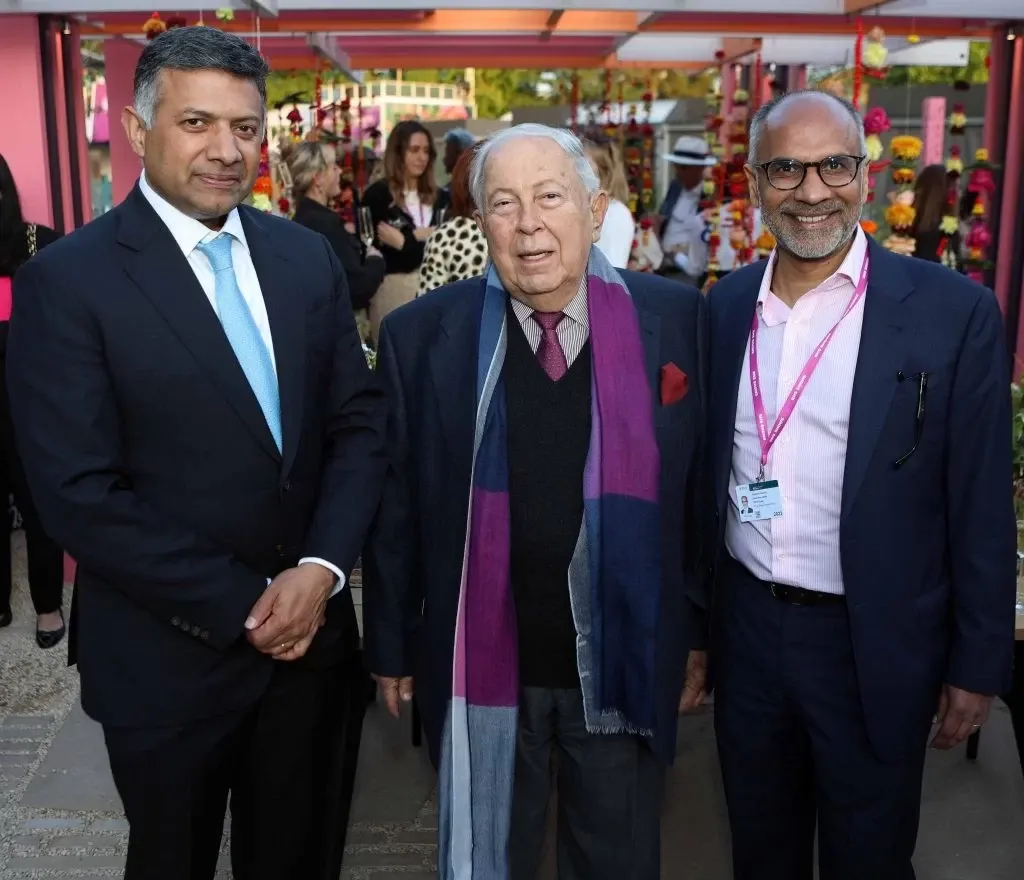
Dr Yusuf Hamied and Shailesh Solanki
Dr Chaand Nagpaul, who had to deal with the Covid pandemic as chair of the Council of the British Medical Association (BMA) from 2017-2022, had come with his wife, Meena, who is also a GP.
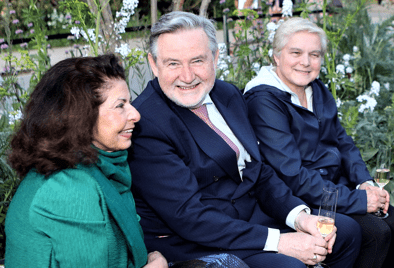
“The RHS/Eastern Eye Garden of Unity symbolised to us that the love of flowers and gardens is universal among people of all nations, backgrounds, characteristics – transcending boundaries and is inherently unifying,” he said. “The garden exuded inclusivity with pillars inscribed in Braille, and touchingly exhibited how gardens can be a personal expression of cultural heritage and roots – from memorabilia of photos of Manoj’s parents to relics from India and Africa where he was born.”
His wife added: “It felt a sanctuary and haven, with a sense of peace enshrined in Indian culture and spirituality.”

The Eastern Eye team was led by Kalpesh Solanki and his brother Shailesh, managing editor and executive editor, respectively, of the Asian Media Group (AMG), which had been founded by their late father, Ramniklal Solanki Nagpaul referred to the brothers’ late mother, Parvatiben Solanki, the group’s co-founder, who had been “a passionate and avid gardener, regularly attending the RHS shows”.
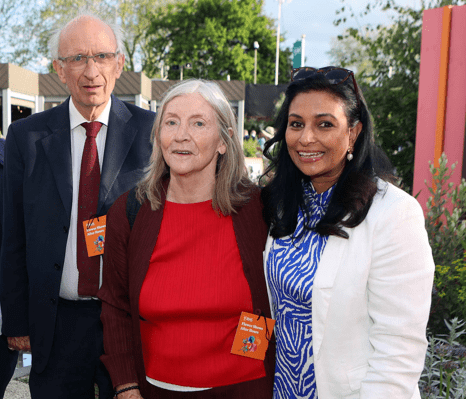
(left) and Sheila Solanki
Guests heard Parvatiben loved growing Princess Lilies, roses and dahlias, as well as chillies, aubergines and colocasia (used to make savoury Gujarati dish called patra) at her home in London. Meanwhile, at her Indian home in Ahmedabad in Gujarat, she grew bougainvillea, jasmine and rajani gandha (fragrant white flowers called tuberose in English).
Parvatiben would visit Chelsea, accompanied by her grandson, Jaimin, and snap up bargains at the end of the flower show. That practice remains one of the rituals at Chelsea.
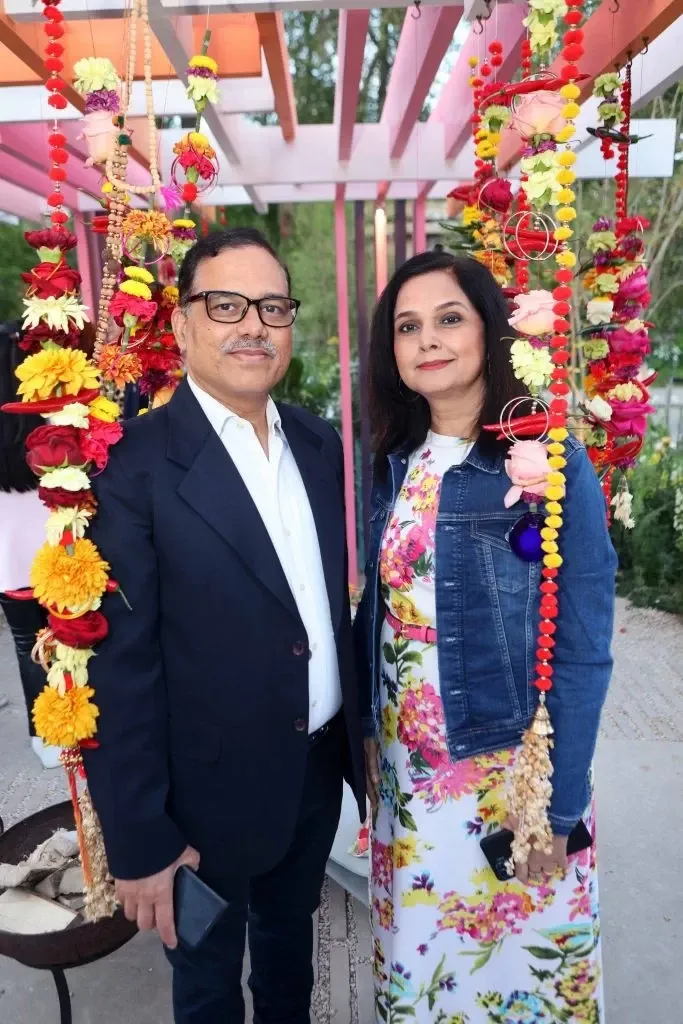
Malde had to answer so many questions at the garden that his voice gave out and he was too un
well to attend the reception. Among questions he was asked were – where did the inspiration come from for the garden? How were the garlands made? ‘Where can I get old oil drums as I would like to paint some for my garden?’
“There were many questions about the plants, especially the Angelica archangelica and the Grevillea,” said Malde. “Many people also asked about the significance of the family photos on the table and the variety of fruits, vegetables and spices that were curated on the table along with exotic flora.”
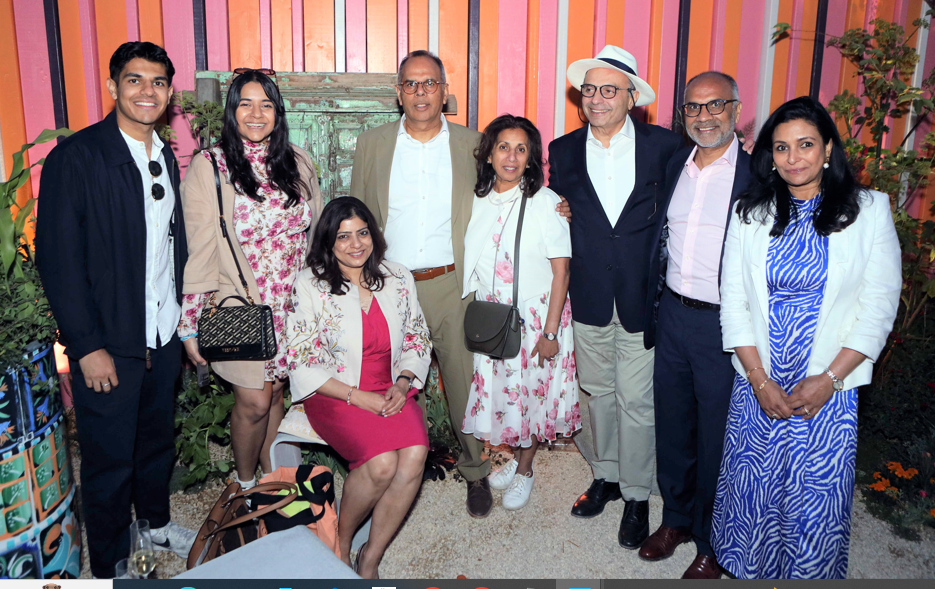
He quickly discovered TV and social media coverage of the garden had gone global. “Catching the number 170 bus from Victoria to the show grounds, it was surreal that I was recognised by all the passengers,” he laughed.
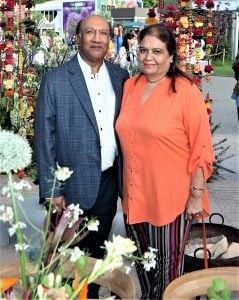
“The public’s reaction has been wonderful. They have loved the use of colour and found the garden very joyful. Many remarked it’s the only one at the show with so much colour. They seem to really enjoy a designer from a different cultural background bringing his heritage and identity into the garden.”
At the end of the Chelsea Flower Show, Shailesh said gardening promotes mental well-being. He summed up: “We are proud to work with the RHS to engage so many diverse communities. Gardening is truly for everyone.”
